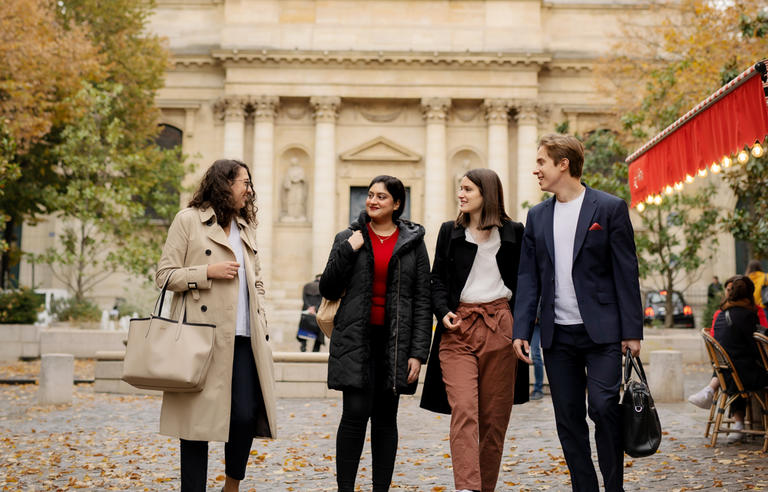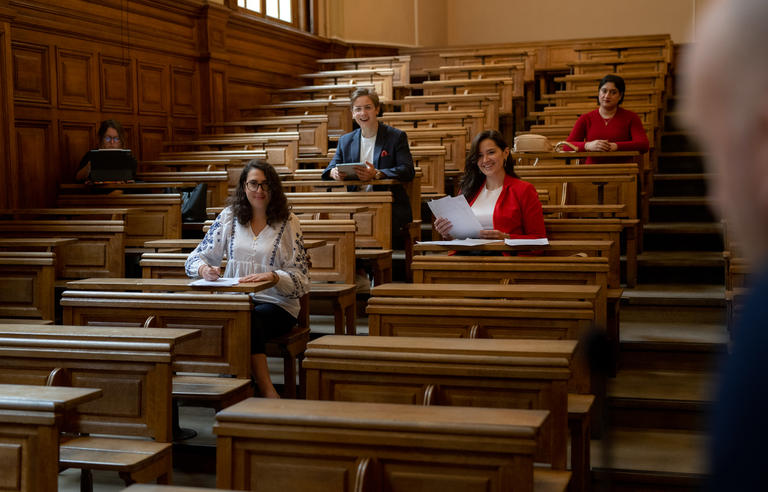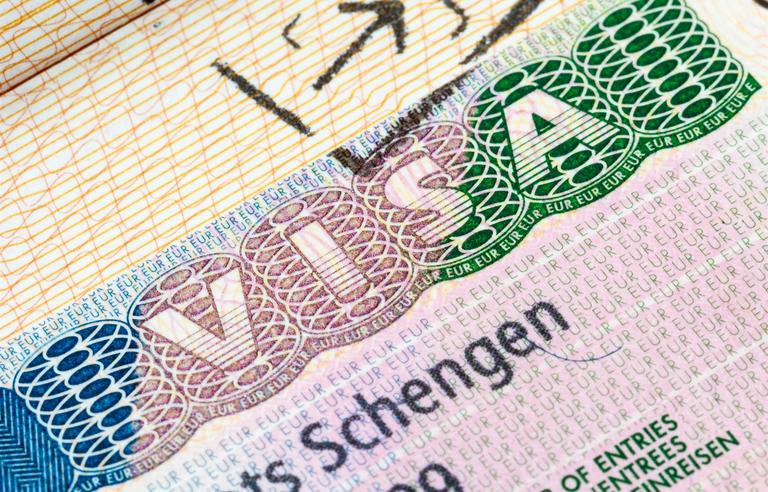So, you've made up your mind to study in France. Here you will find everything you need to do and plan, step by step, to properly prepare for your arrival in France. A dedicated guide to the steps can be found below on this page.
Before your departure
A common source of cultural shock when moving to a foreign country is dealing with a new administration system. In France, this often means you simply have to take a step-by-step approach when going through administrative procedures - Planning ahead may seem difficult because you might only get instructions for the next step you’re facing. It’s important to be patient and be prepared for changes along the way.
1/ Obtain your visa
If you are not a European Union national, complete the procedures to obtain your visa at least one month before your arrival in France. You can submit your visa application as soon as you receive proof of acceptance from your institution in France.
2/ Pay your contribution to campus and student life (CVEC)
The contribution to campus and student life is similar to the Student Service and Amenities Fee (SSAF) in Australia and costs 91 euros per year. You can pay it online at cvec.etudiant.gouv.fr.
Our tip: be sure to keep the receipt generated after your payment. You may have to provide it during your enrolment in your institution.
All students must pay this contribution, with the exception of:
- Exchange students in programs governed by an agreement between a home institution abroad and a host institution in France. Such students are not officially considered to be enrolled in France
- Students receiving need-based scholarships managed by CROUS, students receiving French government scholarships and students financed by one of France’s regions to study in paramedical, health, and social programs
- Students who are refugees, who have been granted subsidiary protection or seeking asylum.
- Students enrolling in technical certificate programs (brevet de technicien supérieur), students pursuing an undergraduate art degree (diplôme des métiers d'art)
For all other cases, even students exempt from payment of the CVEC must login to the website cvec.etudiant.gouv.fr to validate their exemption and receive a certification allowing them to register to their higher education institution.
For a step-by-step guide, click here.
3/ Calculate your budget
Think about your budget and check whether you will be able to withdraw money using your Australian bank card upon arrival in France. Otherwise, plan on taking enough cash to get by until you can open a French bank account.
4/ Find your new home
Before you arrive in France, you may wish to start looking for accommodation to get an idea of what if availlable. If you are planning on looking for accomodation when you arrive in France, remember to reserve temporary accomodation until you can find somewhere permanent.
Prepare the documents you will need for your trip and for setting up
France has a strict legal policy about identity fraud, and is therefore more cautious at every level about identity documents. Therefore, it is recommended that you collect all your important documents into one dossier to bring with you. Our advice is to scan and photocopy multiple copies of each document to bring to appointments, and only bring originals if they ask.
Identity documents:
- identity card,
- passport,
- birth certificate (a translated and certified copy),
- driving licence (if you are planning on driving in France).
Documents relating to your studies in France:
- proof of enrolment in your institution,
- proof of language ability (French, English, etc.),
- previous degrees (a translated and certified copy).
Documents relating to your trip:
- your train or plane tickets,
- your itinerary from the airport.
Documents relating to setting up:
- the printed reservation of your temporary accommodation,
- the documents required for taking up residence in the accomodation,
- the list and contact information for your contacts in France.

The day of your arrival
If you arrive in France by train or plane and must take public transit to get to your accomodation, you can purchase your travel passes from an automatic machine or from a teller. Payment may be made by bank card.
Get back to your accommodation and complete the formalities required for you to move in.
The first days following arrival
As soon as you arrive, make sure to complete the 4 following important steps.
1/ Enrolment in your higher education institution
Before, make sure you take care of the contribution to campus and student life (CVEC), if you didn't do it online (cvec.etudiant.gouv.fr) already.
Then go to the enrolment department to finalise your enrolment, pay your tuition fees (unless you paid in full in advance). At the end of the process you will receive your student ID card. Visit your university’s website to find out the enrolment deadlines and other details of registration.
You will also enroll in the national student health plan (securité sociale), and choose a complemental insurance plan (mutuelle). You can have a look on our Health, healthcare and healthcare mutuals article about it.
This is the first step to complete, before any other. It is mandatory to enroll in your higher education institution. You may even be able to complete this step before coming to France.
2/ Open a bank account and apply for French housing aid (CAF)
Check out our articles about Banking, Phone & Data Travel Tips and Cost of living in France for all the details about these processes.
You may also need to purchase additional insurance (house insurance), as well as a bus/subway card or other transport concessions.
3/ Validate your residence permit
If you came to France with a long stay visa used as residence permit (VLS-TS in French), you must validate your visa as soon as you arrive in France. The process is entirely digital: you can do everything remotely, at home, on your computer. You must validate your visa within 3 months of arriving in France.
To do so, visit the following website: https://administration-etrangers-en-france.interieur.gouv.fr
To validate your VLS-TS visa you will need:
- a valid email address,
- your date of arrival in France,
- your home address in France,
- a bank card to pay online the fee for issuing the residence permit.
What if you do not have a bank card? Don't worry! You can buy an electronic stamp (timbre électronique) at a kiosk, at a dedicated terminal, and pay in cash.
During the first month
- Go to the Admissions Department of your institution to obtain your timetable.
- Check out the library at your institution to make sure that your library card works properly (your student card often doubles as a library card).
- Also visit the CROUS department to activate your Resto U e-cash card and the Pass Culture that brings you lots of benefits.
- If your institution is having an integration week or week-end, don't hesitate to sign up: it's a good way to meet other students and to practise your French.
- Finally, get in touch with the student associations to learn about the activities they offer throughout the year.





















